Category Archives: Test translation and localisation

Why back translation is inadequate to assess quality in a translated test
by Steve Dept, cApStAn CEO When translating an assessment, a linguistically correct, fluent translation does not ensure that same constructs are measured, that test items are understood the same way or, for that matter, that the fairness, reliability and validity of the test have been maintained. This explains why more sophisticated translation designs are required …
“Why back translation is inadequate to assess quality in a translated test”
Read More
Multilingual tests: Why adequate training of linguists is a key component of translation quality in test translation and adaptation
by Steve Dept, cApStAn CEO All language service providers will claim that they only work with experienced translators, which is mostly true, but this does not per se ensure translation quality. Serious organisations – and there are many – will invest time in preparing their test translation and adaptation projects thoroughly for multilingual tests: this …
Read More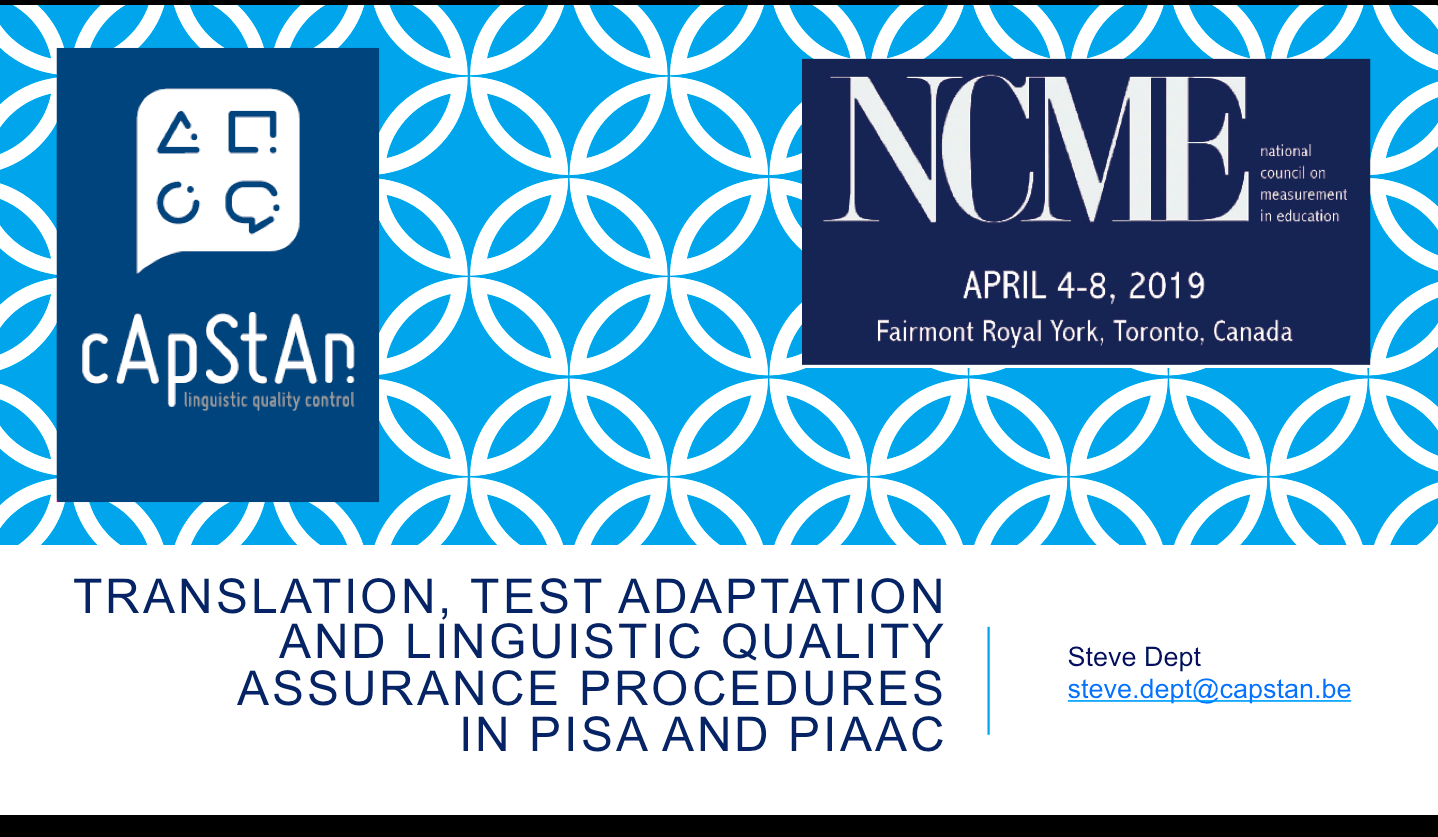
Translation, test adaptation and linguistic quality assurance procedures in International Large Scale Assessments
by Pisana Ferrari – cApStAn Ambassador to the Global Village Translation quality is crucial in International Large Scale Assessments (ILSAs) as meaning shifts, which are language-driven, and perception shifts, which are culture-driven, can affect the psychometric properties of test items and thus compromise comparability. At the recent NCME conference in Toronto our CEO Steve Dept …
Read More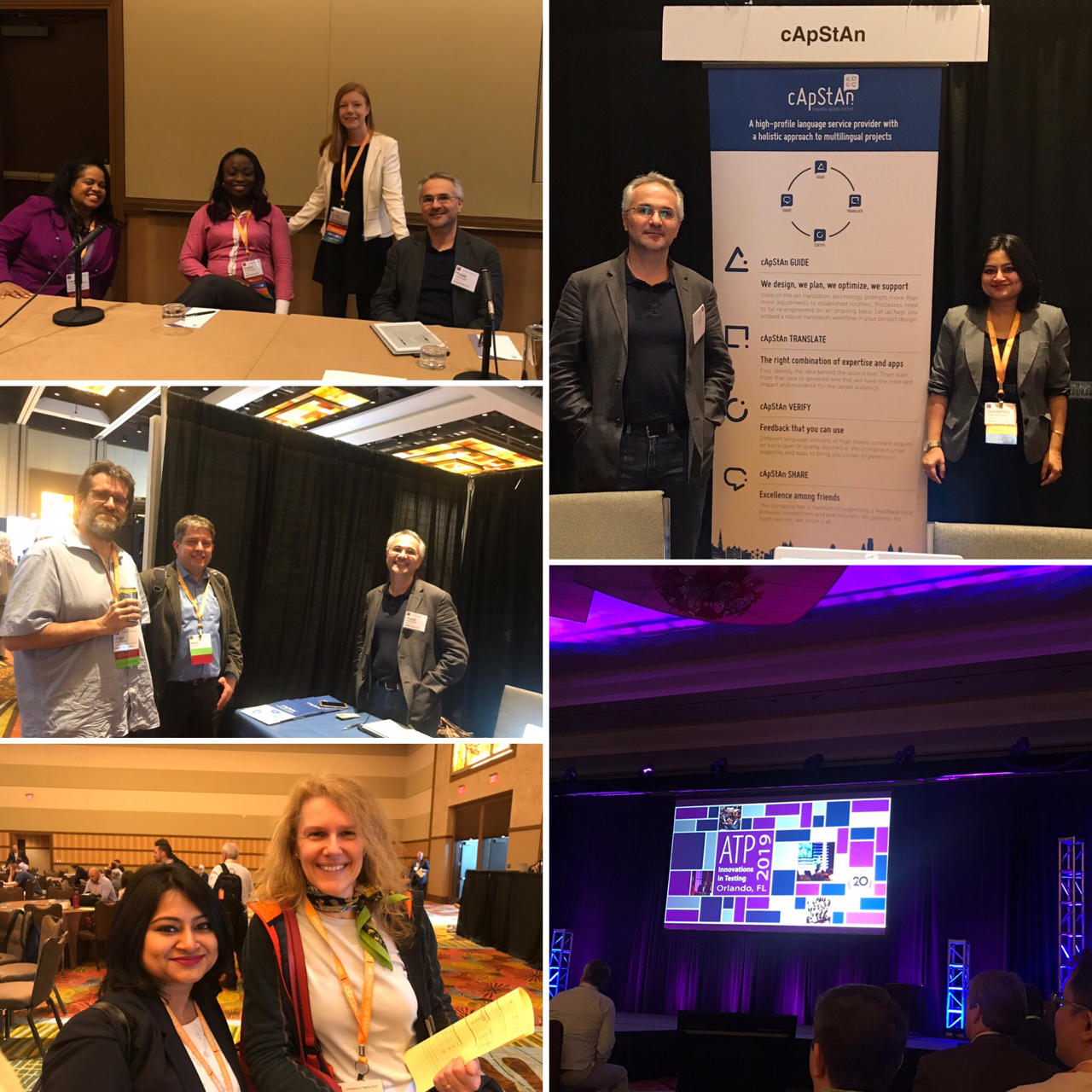
“Translation is Not Enough: Preparing Your Exam for a Global Environment”
There is a growing interest and awareness of the need for a robust translation/adaptation design when administering tests in multiple languages and that this was reflected in the recent ATP Innovations in Testing 2019 conference program. cApStAn LQC is proud to be gold sponsor of this exceptional forum and we were delighted to present with …
““Translation is Not Enough: Preparing Your Exam for a Global Environment””
Read More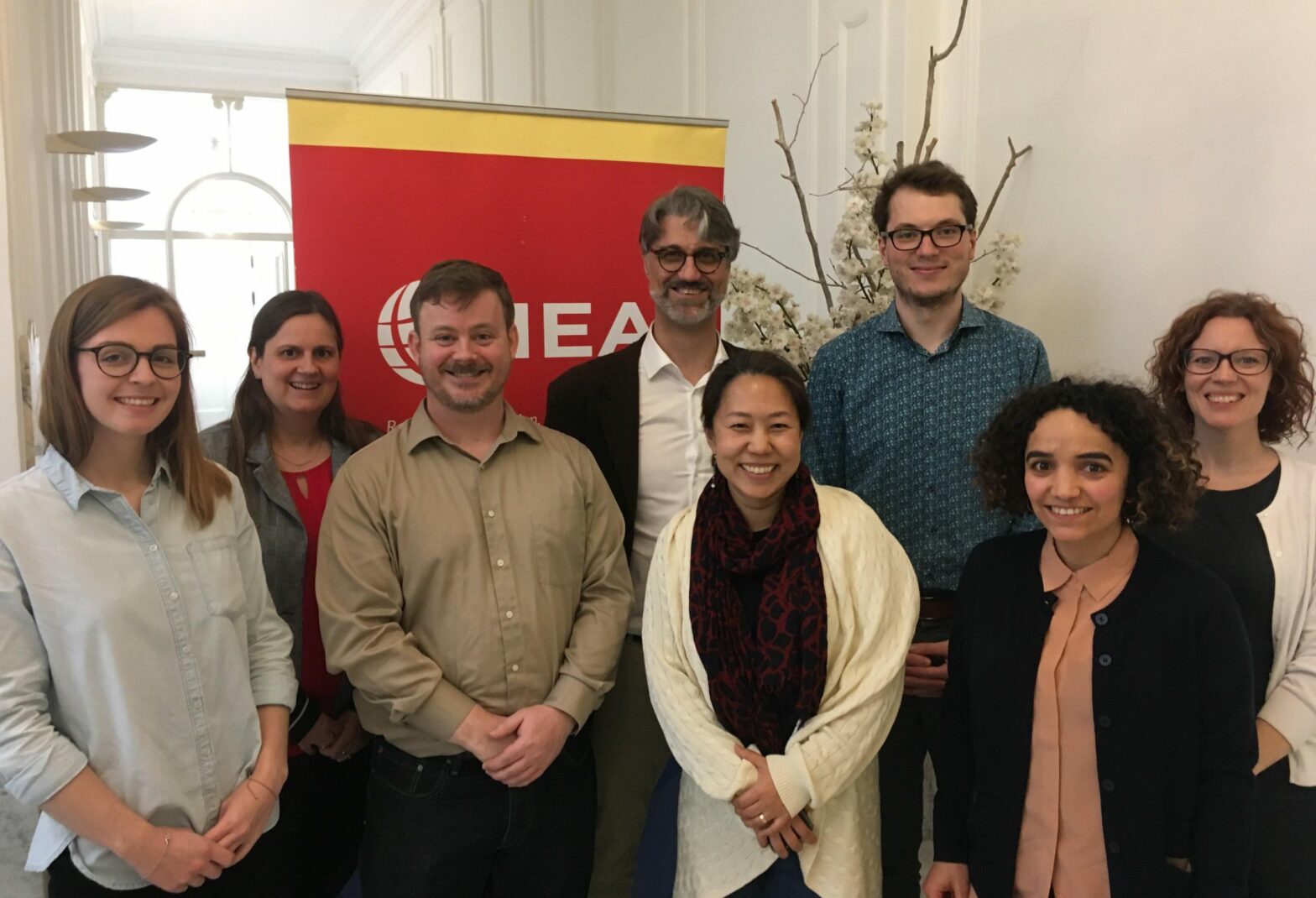
Translation and verification for international studies – IEA meeting
A cApStAn delegation consisting of Emel İnce (lead project manager for TIMSS 2019), Shinoh Lee (Operations Director) and our CEO Steve Dept received a warm welcome at IEA (International Association for the Evaluation of Educational Achievement) last Thursday the 28th of February. An incredibly constructive meeting with IEA Amsterdam director, Andrea Netten P.h.D. and project team David Ebbs, Lauren Musu, Jan-Philipp …
“Translation and verification for international studies – IEA meeting”
Read More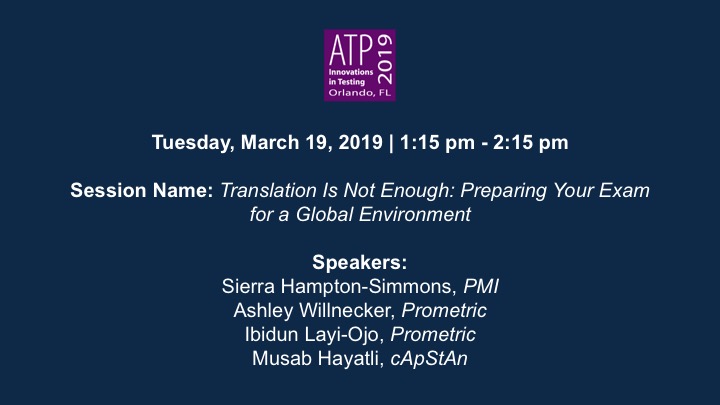
Planning to go international with your tests and assessments? Don’t miss our session at ATP 2019
Multilingual assessements will be a hot topic at ATP Innovations in Testing 2019 (March 15-20, Orlando, US) as there is a growing awareness of the need of a robust translation/adaptation design when administering tests in multiple languages. Advances in test adaptation and state-of-the-art translation technology have changed the paradigm. cApStAn has organized, coordinated and supervised …
“Planning to go international with your tests and assessments? Don’t miss our session at ATP 2019”
Read More
A Sense of Direction
by Steve Dept – cApStAn partner cApStAn linguistic quality control is a brand name (and a registered trademark) for a holistic approach to translation and adaptation of assessments and surveys; cApStAn also stands for a certain lifestyle and spirit: “Excellence among friends”, as one of the founding partners likes to put it. When we take …
Read More
Challenges in parallel translation verification of test items with script/audio, e.g. for pre-school children
by Pisana Ferrari – cApStAn Ambassador to the Global Village/Roberta Lizzi – Senior project manager, external human resources director @cApStAn cApStAn has almost two decades of experience in the linguistic quality control of test items in international large scale assessements, such as PISA, PIAAC, PIRLS, TIMSS, etc. The translation verification process compares source and target …
Read More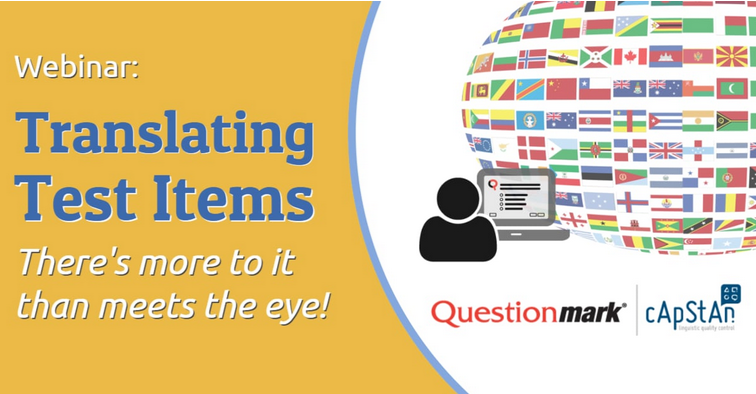
Multilingual tests: when do you translate, when do you adapt? And how?
by Pisana Ferrari – cApStAn Ambassador to the Global Village What reasonable investments should you make to move beyond the “just translate it” attitude? When do you translate, when do you adapt? What workflows work best for the translation of assessments? These are just some of the issues addressed at a well-attended webinar organised jointly …
“Multilingual tests: when do you translate, when do you adapt? And how?”
Read More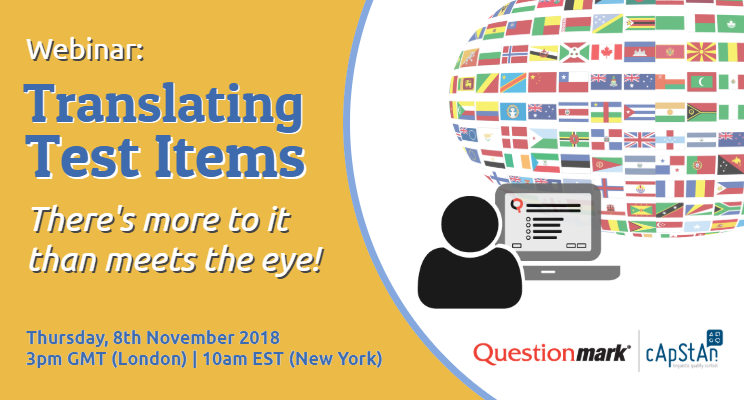
Announcing the joint Questionmark/cApStAn webinar on assessment localization – 8 Nov
by Pisana Ferrari – cApStAn Ambassador to the Global Village Globalization and innovative web technologies have removed geographic boundaries and opened new opportunities for awarding bodies, technology certification programs and credentialing organizations. However, with these opportunities come new challenges: How do you localize items and assessments so they will reliably measure knowledge, skills and abilities …
“Announcing the joint Questionmark/cApStAn webinar on assessment localization – 8 Nov”
Read More
Offline AI and boiler plate approach in multilingual testing
by Steve Dept – cApStAn partner Will AI allow test development, item banking, item localization, validation and multilingual test delivery to all happen in one integrated environment? The AI behind adaptive translation is not the same as the AI behind item generation, but they can work together to build a robust boiler plate in multiple …
“Offline AI and boiler plate approach in multilingual testing”
Read More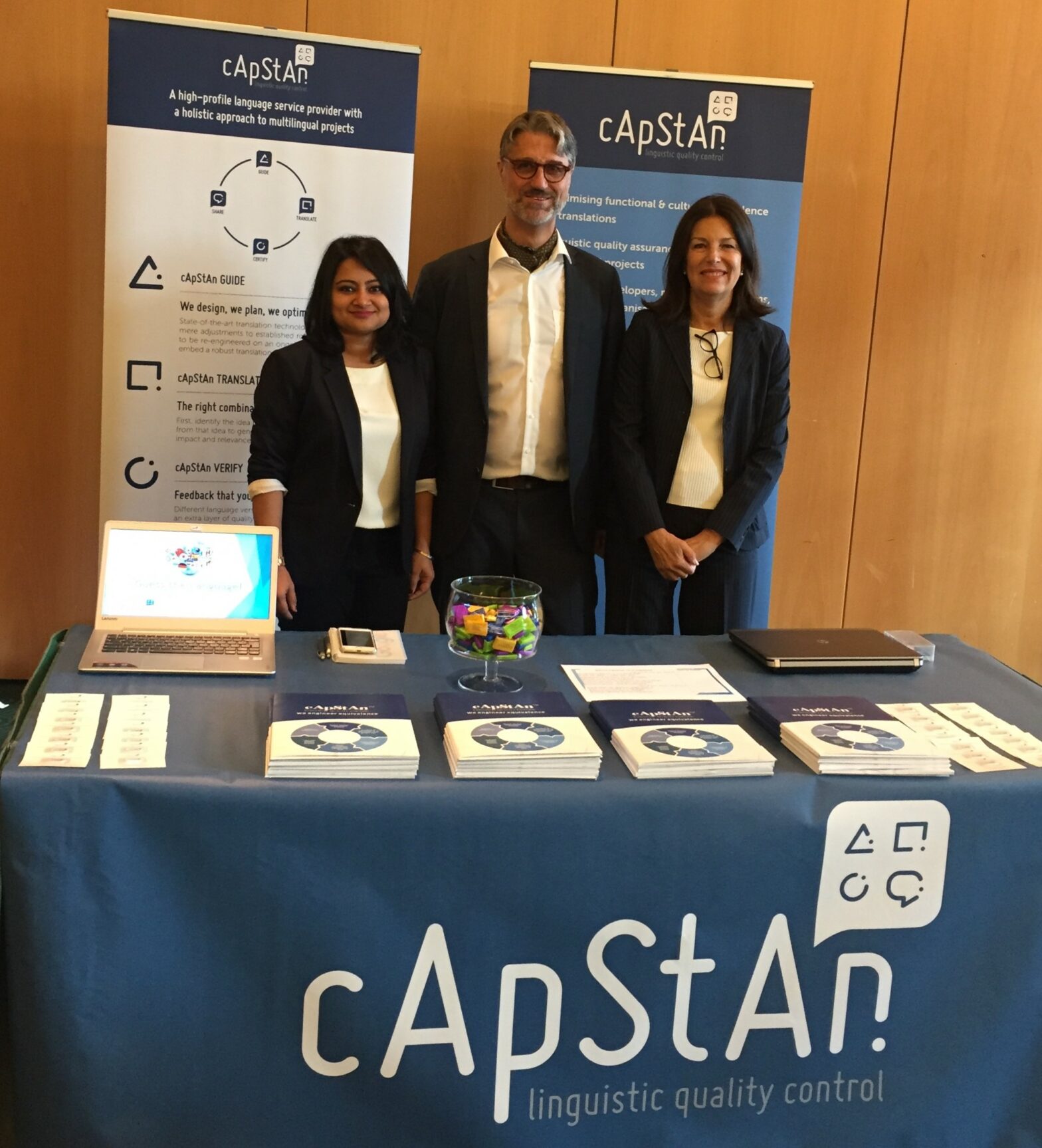
The Testing Industry, 21st Century Skills and the Medicane
by Steve Dept – cApStAn partner Dublin, Lisbon, Amsterdam, and now Athens. This was cApStAn’s fourth participation in a conference of the European arm of the Association of Test Publishers (E-ATP). Why would a linguistic quality control agency participate in a test publishers’ conference? A high-level conference at that, with 327 attendees (of which 24 were …
“The Testing Industry, 21st Century Skills and the Medicane”
Read More